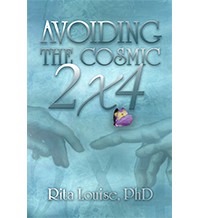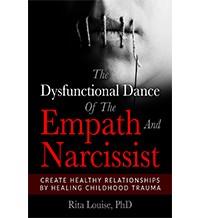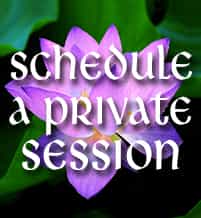What Are Healthy Boundaries?
Life is not all about living sequestered in a cave somewhere. It is about having interactions with others. Humans are social creatures and having relationships is part of the human experience. One thing that is required, yet often overlooked, when talking about our relationships is the concept of setting, having and maintaining healthy boundaries. Maintaining healthy boundaries also support our self-esteem.
According to Psychology Today, boundaries are essential for mental health and self-respect. Boundaries define limits. We create boundaries to protect and care for ourselves. They allow us to establish our line in the sand, where we can ensure that we are treated with honor, dignity and respect.
When we express our personal boundaries, we let others know how we want to be treated as well as when they are acting in inappropriate or in unacceptable ways. When our boundaries get crossed, it automatically sets off one of our stress responses and we will react to the incursion by fighting, fleeing (flight), freezing or fawning (appeasing).
Why Healthy Boundaries Matter
Think about a time when an unknown or unwelcomed individual stood very close to you. Did it make you feel uncomfortable, scared, anxious or threatened? The discomfort you experienced is always the sign of a boundary violation. These feelings are also a direct indicator of your stress response system being activated.
Physical boundary violations are usually pretty easy to detect. Emotional, mental and spiritual boundary violations are a bit harder to discern. Children who grew up in a traumatic household are not taught how to create much less enforce a boundary.
Many have had their boundaries violated so often they may not even recognize when they are crossed. They may have come to accept people ignoring them and their desires or may feel extreme guilt when looking to enforce one. They may also go into denial of what is really going on, or mentally justify the situation to make it be tolerable.
Trauma and Its Impact on Boundaries
Our stress responses are often activated when personal boundaries are crossed. Freeze and fawn types are more likely to have issues with healthy boundaries. They often lack the ability to express themselves appropriately. This interferes with their capability to maintain healthy boundaries. The National Alliance on Mental Illness highlights that individuals with trauma-related mental health conditions may struggle with boundaries.
They often have a hard time being assertive and voicing their opinions. They may have a weak sense of self and exhibit a willingness to suffer at the expense of doing favors for others. They may find themselves repeatedly being exploited by individuals who are controlling, toxic or who possess narcissistic tendencies who, if given the chance, will take as much as they can and give nothing in return.
Challenges With Setting Healthy Boundaries
Boundary issues most often present themselves in our closest relationships. The ones that offer the biggest rewards can also be the source of our greatest. It is easy for us to have strong boundaries when we are interacting with someone at the grocery store, or when we are dealing with an issue at the bank.
Where challenges arise is when we are trying to maintain our boundaries with our close friends, romantic relationships and families. We want to trust these individuals. We automatically assume they will honor and respect us. This is not always the case. There are some yucky people out there and those same toxic individuals are more than happy to take advantage of us.
But there is the other aspect to it. The bigger issue, when talking about our close relationships, is deep inside we do not want to hurt them. We want to get along, especially if you are a traumatized empath and are sensitive to other people’s feelings. Trying to exert a boundary might bring up feelings of fear, abandonment, rejection, lack of self worth and more. You might find yourself plagued with guilt. So instead of being honest and authentic with ourselves we concede to their wishes.
Setting Boundaries Supports Our Self-Esteem
Understanding what healthy boundaries are and how to apply them appropriately is one of the most important things you can do to ensure that you are being treated right. Psych Central explains that without solid boundaries, individuals risk emotional exhaustion and enmeshed relationships, which can erode self-esteem over time.
When you set a boundary, you are loving yourself when you stand up for what you want, need and most importantly believe. If it doesn’t matter to you, if you do not stand up for yourself, it will not matter to others either.
Everything begins to change once we start having a more loving, caring and nurturing relationship with ourselves. We will start to naturally and normally set boundaries with others; begin to speak our truth and own our right to be alive. There is a feedback loop between healthy boundaries and self-esteem: self-esteem enables us to have strong boundaries and strong boundaries in turn enhance self-esteem. As one grows, the other grows naturally, healthily as well.
Recognizing when boundaries were crossed is critical as well. We can take steps to ensure that the offending behavior does not happen again once we begin to recognized an infringed upon boundary. It is only through an awareness of ourselves: by knowing what we want and what we value that we can begin implementing the changes needed to convert unhealthy boundaries into one that work successfully for us.
How to Set Healthy Boundaries (Step-by-Step Guide)
Anyone can create and establish healthy boundaries. As outlined by PositivePsychology.com, self-awareness is critical for setting boundaries, requiring individuals to identify their values and comfort levels in various contexts. There are three parts or sections to creating a healthy boundary. Part 1 and Part 2 set the boundary. Part 3 identifies what you will do when the boundary gets crossed.
Steps to setting a boundary:
- Part 1: “If you…” – Is a description of the behavior you find unacceptable [be as descriptive as possible].
- Part 2: “I will…” – Is a description of what action you will take to protect and take care of yourself in the event the other person violates the boundary.
- Part 3: “If you continue this behavior I will…” – Is a description of what steps you will take to protect the boundary that you have set.
Enforcing Boundaries Without Guilt
Sounds pretty simple doesn’t it? I am sure you have found yourself moving through these steps of boundary creation and enforcement on more than one occasion if you have children. Establishing a boundary, for most people, is pretty easy. Here is the rub. You must be willing to enforce them for them to be effective. You need to be willing do whatever it takes to protect yourself, regardless of who it is, be is close friend, family member or even your spouse. It is the only way in which you will ever be taken seriously by another.
When you set a boundary and do not enforce it, you are not holding the offender accountable for their actions that are hurtful or distressful to you. They will learn that regardless of what you say, you will never do anything about it. There will never be any consequences to their mistreatment of you. Your unwitting acceptance of their bad behavior gives them permission to continue hurting you, that is, unless you put your foot down, love yourself and uphold your boundary.
Challenges in Maintaining Boundaries
No one ever said learning to have healthy boundaries is easy. It can be one of the hardest things we will ever do. You would be surprised to know just how many people can not say a simple two letter word – “NO!”
Recommended Resources
- NAMI: Offers resources for trauma survivors to rebuild self-esteem through boundaries.
- American Psychological Association: Offers evidence-based insights on how boundaries support mental health.
- Mayo Clinic: Provides practical advice on setting boundaries to reduce stress and improve well-being.
- PositivePsychology.com: Features step-by-step guides and worksheets for boundary-setting.
- Psych Central: Explains how boundaries prevent emotional exhaustion and foster independence.
Need help setting boundaries?
Taking action is the key to making positive changes in your life. This includes your mental and emotional health. So don’t wait! Take your next step right now and contact Dr. Rita to schedule a private consultation.
Medical Intuitive Reading – Intuitive Counseling – Energy Healing
© Copyright Rita Louise, Inc. – soulhealer.com. All rights reserved.




